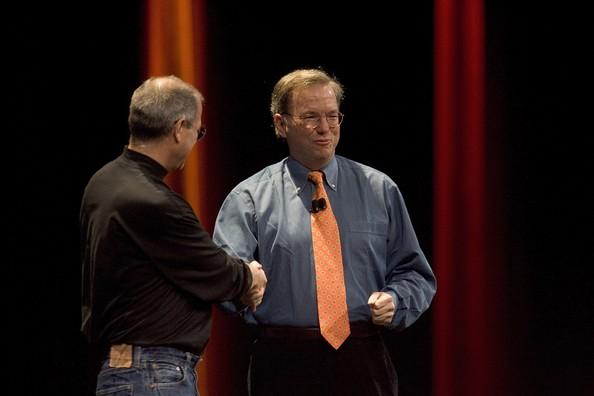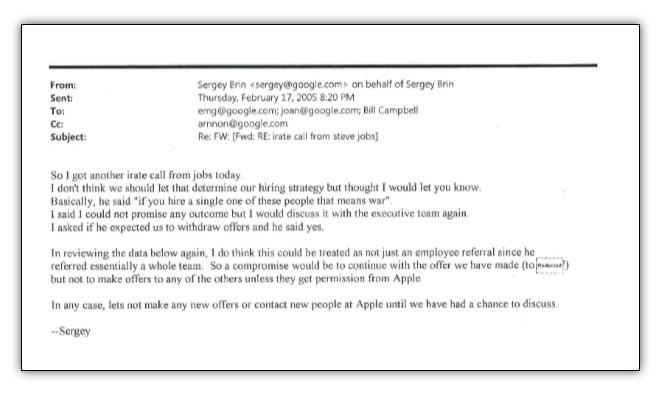Apple, Google & others could pay 'blindingly high' $9B in anti-poaching class-action suit
A class-action lawsuit from tech sector employees against employers including Apple and Google seeks some $9 billion in lost wages — Â an astronomical sum that the complainants could ultimately receive, some believe, thanks to a mountain of evidence appearing to implicate Silicon Valley employers in an alleged no-hire cartel.
About 100,000 employees are involved in the lawsuit, seeking a payment of about $90,000 per person — a payment The New York Times characterized this week as a "blindingly high number." But the employees are apparently confident in seeking $9 billion because the evidence against employers, who are accused of agreeing to anti-poaching agreements that may have been anticompetitive, and thus may have kept down employee wages.
As the class-action lawsuit progresses, strong evidence has emerged revealing that Apple, Google and others privately agreed to not recruit one another's employees. Late Apple co-founder Steve Jobs himself placed a call to Google's Sergey Brin in which he threatened "war" over recruitment efforts from the rival company.
Jobs also made similar requests of other top company execs like Edward Colligan, former CEO of erstwhile handset maker Palm. Colligan refused to enter any such agreement, however, saying that it was "likely illegal."
Materials from the trial also reveal that Apple's human resources department sent out an email identifying that Google employees were part of a "hands-off" list. Apple, Google, Adobe, Intel and others are accused of participating in an "overarching conspiracy" to keep employee wages down through anti-poaching agreements.
Privately, the accused companies reportedly believe the $9 billion sum is "extortion." But the 100,000 employees of the class-action suit are said to believe the evidence is "damning" and "embarrassing" enough that they could come away with a big payday.
Lawyers contacted by the Times said that while anti-poaching agreements in specific instances may be permissible, blanket bans such as the ones it appears Silicon Valley had in place are "plainly anticompetitive." And even tech company executives appear to have known the policy was potentially illegal, as former Intel CEO Paul Otellini said in one disclosed email that he would not like for the anti-poaching agreement to be "broadly known."
The class-action suit is scheduled to go to trial in San Jose in May. However, the parties involved are currently engaged in settlement talks out of court.
Apple and others made a last-ditch request to prevent the trial last month, but a judge denied their efforts and said the trial will proceed. The plaintiffs in the case were granted class status last October by U.S. District Court Judge Lucy Koh. Since then, the number of plaintiffs have ballooned from some 64,000 past and present employees to six figures' worth of workers.
The U.S. Department of Justice leveled its own lawsuit regarding the matter after investigating Apple, Adobe, Google, Intel, Intuit, and Pixar for the same anti-poaching measures. The defendants ultimately settled with the DOJ in 2010.
 Neil Hughes
Neil Hughes












 Mike Wuerthele
Mike Wuerthele
 Malcolm Owen
Malcolm Owen
 Chip Loder
Chip Loder

 William Gallagher
William Gallagher
 Christine McKee
Christine McKee
 Michael Stroup
Michael Stroup
 William Gallagher and Mike Wuerthele
William Gallagher and Mike Wuerthele






